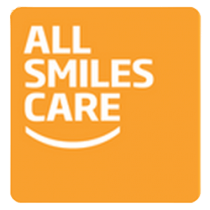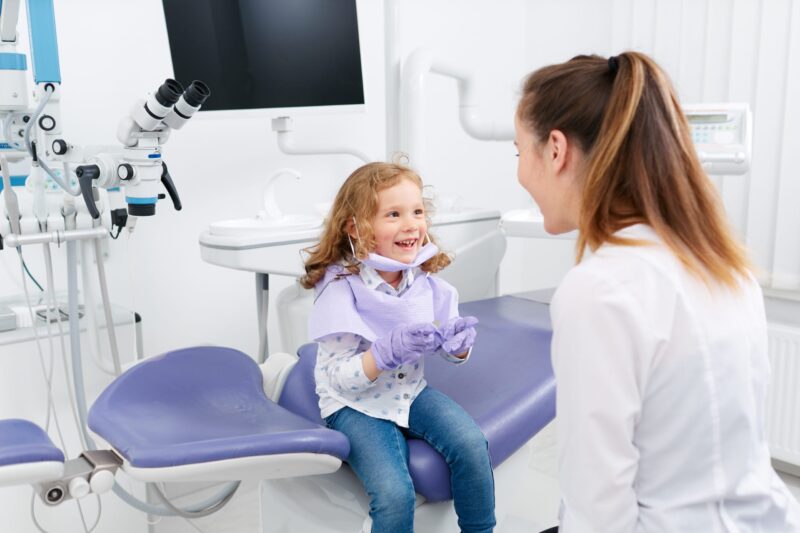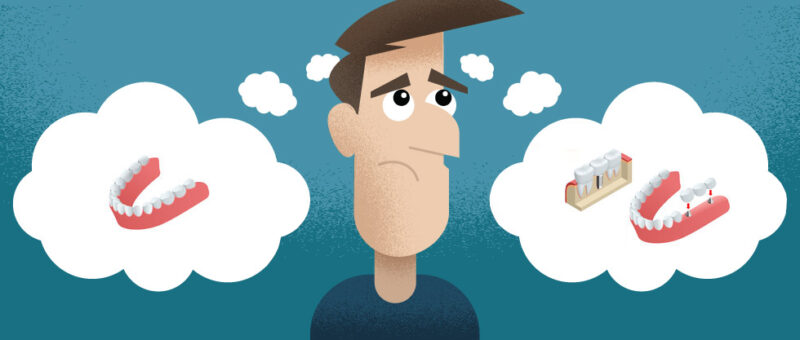Dental Care for Kids – FAQs
When it’s time for small children to go to their first dentist appointment, it can be overwhelming, not just for them, but also for their parents. On top of needing to keep their children calm and collected as their dentists examine their teeth, parents need to stay on top of what’s happening during the exam. Additionally, they’re likely going to have questions about their ongoing dental care. But, it can be hard to know exactly what to ask once they get to the dentist.
If you’ve ever been in this boat, you’re not alone and we want to help. Below, we’ve put together a series of questions that are important to ask your child’s dentist before, during, and after their initial dental visits. Keep reading to learn more!
When Should Kids Have Their First Dental Visit?
The American Academy of Pediatric Dentistry recommends that children go to the dentist at around age one or within six months of their first tooth coming in. It’s a common misconception that pediatric dental care can be delayed until children are much older, but in reality, the earlier you can take your child to the dentist, the better their overall comfort and dental care will be.
What Dental Care Products Are Best for Kids?
When choosing dental care products for your kids, the key is to maximize their comfort but also maximize the potential for fun. So, instead of run of the mill toothbrushes, toothpaste, and floss, try to find products with added character so your children will be more tempted to use them regularly with and without your encouragement. For example, try to find a fluoride toothpaste that tastes good and also has added sparkle, or find a toothbrush that’s either in their favorite color or features a fun design. For flossing, we recommend finding soft flossers that have a nice flavor.
When Should You Start Brushing a Baby’s Teeth?
One of the most common questions first-time parents ask is when to start brushing baby teeth, and the answer often surprises them. You should start brushing a baby’s teeth as soon as they start to erupt, around six months of age. But, instead of going in straight away with a proper toothbrush and toothpaste, you can start “brushing” with either a warm cloth or an extremely soft toothbrush and water. At 18 months, you can start introducing toothpaste into their at-home oral care routine.
How Can I Help Soothe a Teething Baby or a Child With a Toothache?
Teething and toothaches are hard for both babies and parents, but there are a few things you can do to help ease the discomfort.
For teething, try rubbing their gums with a clean finger or wet gauze. The pressure can help ease the discomfort they are feeling. Alternatively, try to give them cool things to put in their mouths, like chilled teething rings or a cold spoon.
For toothaches, rinsing with plain warm water and a teaspoon of salt can help relieve any pain or discomfort. Additionally, applying a cold compress to the side of the face where the toothache is can help tremendously. If the pain persists for more than 24-36 hours, you may want to take them to the dentist so they can take a look.
For both instances, you can also give them small doses of over-the-counter pain medications such as Tylenol or Advil.
When Do Kids Lose Their First Tooth?
Typically, kids lose their first tooth around five or six years of age. But, every child is different, so they could easily lose their first tooth as early as four years old and as late as seven years old.
Should You Help Pull Your Child’s Loose Baby Teeth?
You can absolutely help pull your child’s loose baby tooth, but it’s not really a matter of whether it’s medically okay; it’s more up to your child. There are two types of children – ones who want your help pulling their teeth and ones who do not, and you should respect those boundaries to ensure they have a positive experience.
If they would like your help, we recommend doing it as simply as possible – take a tissue, place it over the loose tooth, squeeze, and pull gently. This will cause the least amount of pressure on the gums and the tooth should release without a problem.
How Do I Get My Child To Stop Sucking Their Thumb?
Thumb sucking is a natural habit that babies and small children do as a source of comfort. But, if you notice that this habit is affecting their teeth or speech, it’s important that you try to break them of it. The first thing to do is to talk to your child about it. Once you have that dialogue open, try to redirect them to other comforting things, such as baby herbal tea, small tokens, or their favorite toy.
If those gentle nudges don’t work, you can move on to more proactive measures, such as finger guards or bitter nail polish. You can also schedule an appointment with their dentist so they can give you and them some helpful advice to follow.
How to Choose a Pediatric Dental Care Professional
Like most things, finding a pediatric dentist care professional takes a lot of time and research. You want to make sure that they have the right certifications, are in the best area, and have a ton of helpful reviews. But, if you’ve found several dentists that are fairly similar, go with the dentist that makes you and your child the most comfortable. Every dentist is different in terms of their approach to kids, so finding one that will work well with your child will make all the difference.


